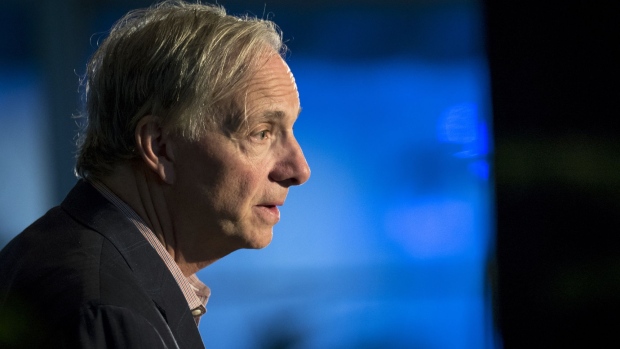Mar 25, 2020
Problem-Solving Billionaires Can’t Solve Every American Problem
, Bloomberg News

(Bloomberg) --
As Americans adapt to shuttered schools, restaurants and offices, the coronavirus pandemic is exposing shortcomings in the U.S. social-safety net and a system that relies heavily on philanthropists to fill the gaps.
San Francisco, Seattle and other cities with high concentrations of ultra-high-net-worth individuals are getting more money than less affluent ones. Meanwhile, some philanthropists have so far been absent from the relief efforts as nonprofits worry the .001% may be guarded in their giving with a global recession all but assured.
Despite a coronavirus stimulus package expected out of Washington, state and local governments are warning they might not have the money to adequately run hospitals and respond to the economic fallout, said Patriotic Millionaires Chairman Morris Pearl, whose group advocates raising taxes on the wealthy.
“If the rich people were paying their fair share, we’d have more resources,” Pearl said.
More than $1.9 billion has been pledged globally by companies, public charities, family foundations and individuals to fight Covid-19, the disease caused by the virus, according to Candid, a nonprofit research and support organization. That’s more than what was donated for hurricanes Katrina and Harvey and the Australian bush fires combined.
In the U.S., the total stands at just over $560 million, about a fifth of it from the Bill and Melinda Gates Foundation. Michael Bloomberg, the founder and majority owner of Bloomberg LP, the parent company of Bloomberg News, also pledged $40 million to a global response fund and $75 million to a New York City impact fund.
Griffin, Dalio
Last month, two hedge fund heavyweights, Citadel’s Ken Griffin and Ray Dalio of Bridgewater Associates, and their companies donated a total of $17.5 million to fight the disease in China. Griffin’s firms donated an additional $2.5 million last week to Chicago’s food bank and public school systems.
Still, most American philanthropists initially refrained from public announcements of large gifts.
“The response to health epidemics is usually handled by nation-states or international organizations,” said Andrew Grabois, Candid’s manager of corporate philanthropy. “In the Ebola outbreak, for example, the problem was seen as too large for family foundations to make an impact and many were scared away from donating or getting involved.”
Philanthropic funds didn’t start flowing from the ultra-rich in the U.S. until the number of coronavirus cases started spiking at home and authorities began locking down cities, states and the nation’s borders.
As restaurants and schools closed, wealthy donors started to see an avenue to pledge money where they could more immediately make a difference: Food banks, hospitals and other community organizations now on the front lines of the economic fallout.
Professional athletes and team owners, like Mark Cuban of the Dallas Mavericks and the Minnesota Timberwolves’ Glen Taylor, stepped in with donations to help cover salaries to arena staff.
Billionaires’ Backyards
The bulk of philanthropic funding usually comes in the first few weeks following a hurricane or other large disaster, when the issue is front-page news, Grabois said. Most calamities, however, are limited in scope and duration when compared with the current one, which will affect the entire planet for the foreseeable future.
And there’s a good chance the giving won’t be spread out evenly.
With many prominent donors concentrated in places like San Francisco, New York and Seattle, philanthropic dollars have so far been concentrated in the backyards of the very rich, including several ranked near the top of the 500-member Bloomberg Billionaires Index.
Tesla Inc.’s Elon Musk delivered 1,000 ventilators to Los Angeles this week. The Chan Zuckerberg Initiative, the charitable foundation led by Priscilla Chan and her husband, Facebook Inc. co-founder Mark Zuckerberg, donated ventilators to a San Francisco hospital, while the social media giant’s operating chief, Sheryl Sandberg, teamed up with a group of tech executives and venture capitalists in contributing more than $7 million to a local food bank.
The Chan Zuckerberg Initiative is also working with the University of California, San Francisco to help create more tests for the virus.
Amazon.com Inc.’s Jeff Bezos and Microsoft Corp. co-founder Bill Gates, the world’s two richest people. joined others in Seattle to contribute more than $13 million to a community-relief fund. In Portland, current and former Nike Inc. executives, including founder Phil Knight, donated $10 million to Oregon nonprofits.
Uneven Distribution
While local relief funds and community foundations have stepped in to help areas that have fewer billionaires, “more money typically goes to wealthier communities,” said Rob Reich, co-director of Stanford University’s Center on Philanthropy and Civil Society and author of “Just Giving: Why Philanthropy is Failing Democracy and How it Can Do Better.”
“Even in ordinary times, there’s an uneven distribution of philanthropic funds geographically with money concentrated in wealthier places,” he said, pointing to the example of Bay Area parents who donate money to an already-wealthy school district to benefit their own kids.
Wealthy business owners could, however, make the biggest impact by helping their workers stay employed and healthy. Still, some of the largest companies including Amazon have been accused of not doing enough.
Amazon’s philanthropic efforts have included a $25 million donation to support independent delivery drivers and seasonal employees under financial distress. But so far it has resisted closing distribution centers where people have been infected and has offered unpaid time off only through March, a difficult proposition for many of its hourly workers.
“We shouldn’t let philanthropic generosity excuse corporate leadership failures,” Reich said. “There are many things CEOs can do in the context of their own companies that are as important if not more important than philanthropic efforts.”
In a Twitter post, Cuban put a finer point on the fissures the pandemic is revealing between America’s rich and poor.
“Whenever we get through this,” he said, “we will look back and wonder why we didn’t use this as an opportunity to attack income inequality.”
©2020 Bloomberg L.P.





